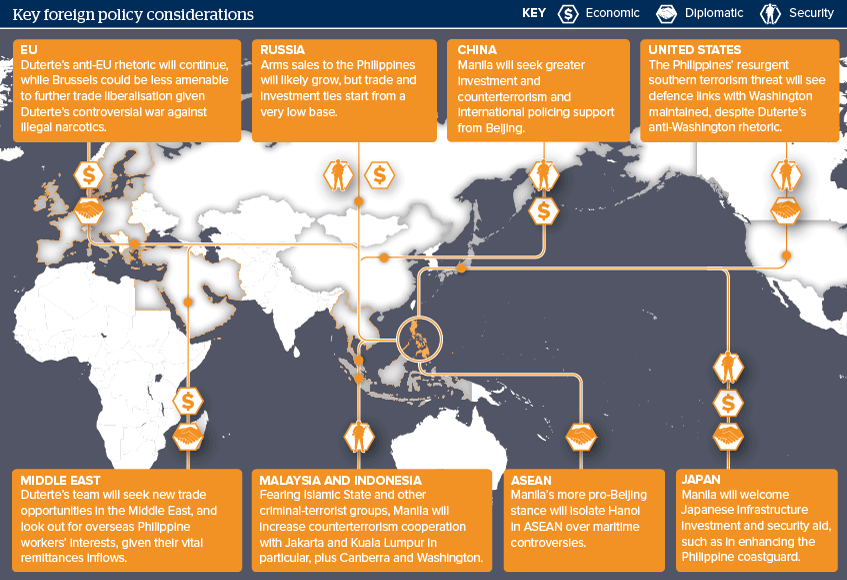Philippine policy pivot’s prospects portend problems
Now into his second year in office, the Philippines’ president is pursuing a new foreign policy direction
Source: Oxford Analytica
Outlook
Since his inauguration in June 2016, President Rodrigo Duterte has embarked on a foreign policy re-pivot, intending to loosen defence and diplomatic ties with ally Washington in favour of closer trade, diplomatic and security links with Beijing and Moscow. He is also emphasising investment and security ties with Tokyo, an enthusiastic supporter of South-east Asia in the face of China.
However, a growing terrorism problem in the Philippine south, Beijing’s superior military and economic might and unwillingness to compromise over the South China Sea, and Russia’s limited South-east Asian presence, with comparatively trace amounts of trade and investment, make Duterte’s re-pivot more a problematic aspiration than promising advance at present.
Impacts
- As the Philippines’ largest trading partner, ties with China are more likely to deepen more quickly and extensively than with Russia.
- However, this will depend on whether Duterte can manage maritime controversies with Beijing effectively, ultimately an unlikely prospect.
- Philippine public opinion will favour US over China ties, especially given maritime frictions; protests are possible as China ties deepen.
See also
- Philippines 2017-18 agenda has modest outlook - Jul 31, 2017
- Philippines China pivot to come under rising pressure - Mar 21, 2017
- More graphic analysis
